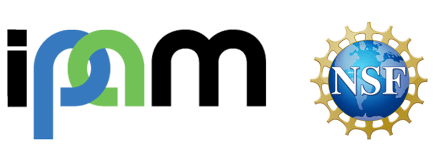White Paper: New Directions in Mathematical Approaches for Traffic Flow Management
This white paper on the recent progress and remaining open questions related to IPAM’s long program Traffic Flow Management was written by the participants of the program and edited by Daniel Work and Benjamin Seibold. Read the full report.

Introduction
Transportation research is currently at a crucial stage: we are facing the emergence of new transformative technologies and systems such as vehicle connectivity, automation, shared-mobility, and advanced sensing which are rapidly changing mobility and accessibility. This in turn will fundamentally transform how transportation planning and operations should be conducted to enable smart and connected communities. On one hand, this process presents us with a great opportunity to build safer, more efficient, reliable, accessible, and sustainable transportation systems. On the other hand, the uncertainties regarding how such disruptive technologies will evolve and how people will react to them pose a number of fundamental challenges. These challenges include: (a) understanding the impacts of connected and automated vehicles on the traffic flow; (b) shifts in travel demand induced by new paradigms in mobility, such as shared mobility; (c) the computational challenges of real-time control strategies for large-scale networks, enabled by emergent technologies; (d) transitioning to predictive and proactive traffic management and control, thus substantially expanding the horizons of transportation network management. The need to effectively address these challenges provides the opportunity for fundamental advances in transportation. Doing so will require a broad and highly interdisciplinary effort among mathematicians, traffic engineers, optimization/control theorists, and computer scientists, amongst others. The NSF-funded Institute for Pure and Applied Mathematics (IPAM) in its 2015 long program on New Directions in Mathematical Approaches for Traffic Flow Management provided a great environment for researchers from these fields to collaborate and take important steps towards a cross-disciplinary effort to addressing these emerging grand challenges in transportation. The white paper was written by the participants of the culminating workshop in December 2015, to provide a comprehensive perspective on the opportunities, the research innovations, the grand challenges, and the needs to enable the community to successfully address them.





